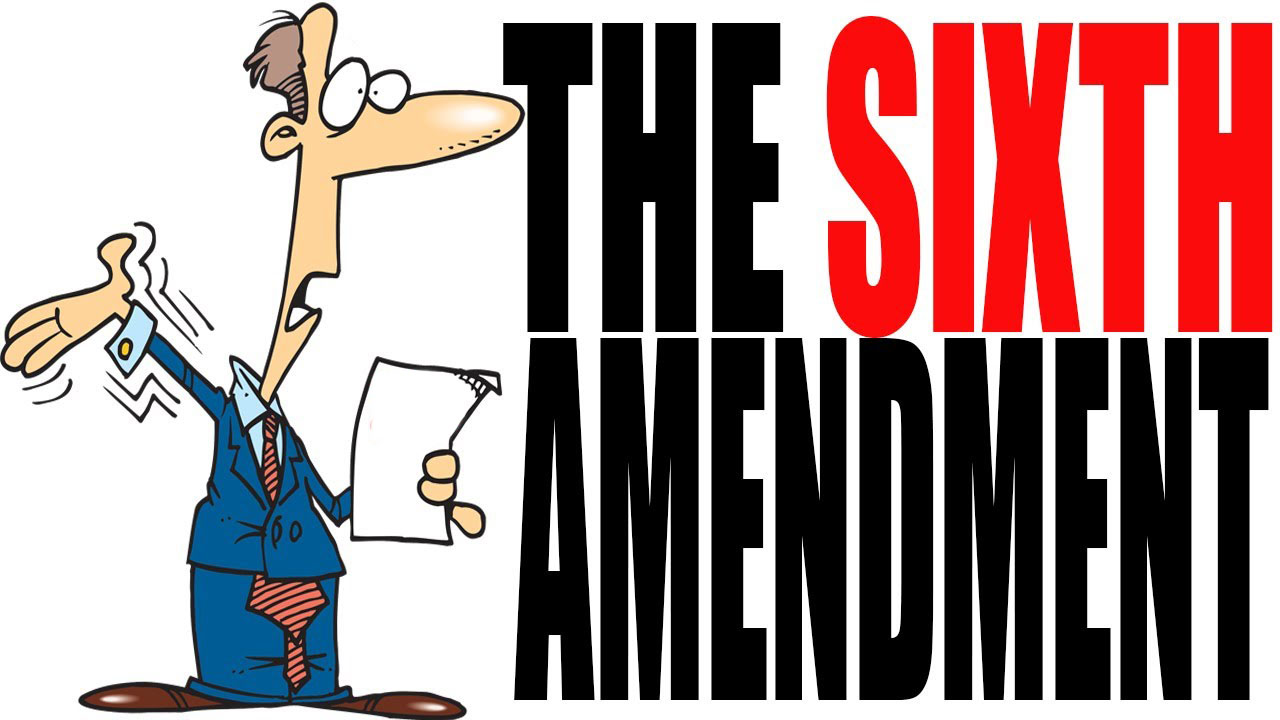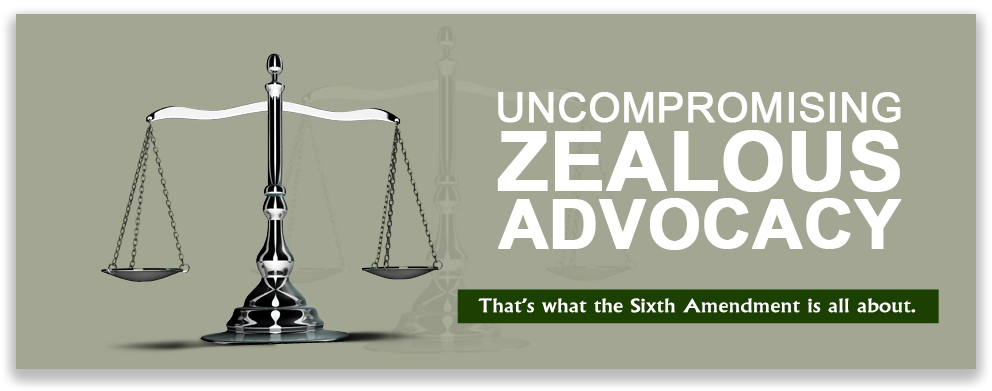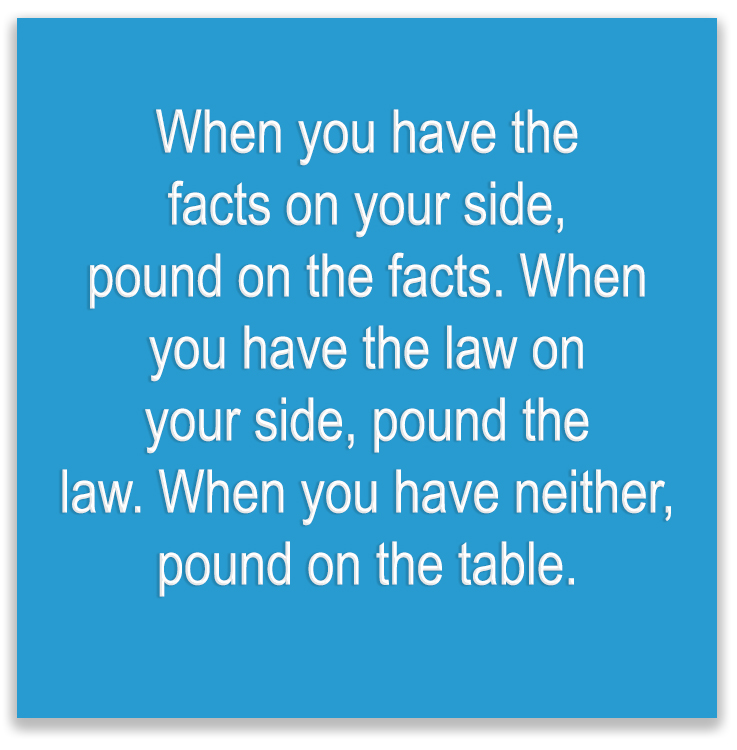We post news and comment on federal criminal justice issues, focused primarily on trial and post-conviction matters, legislative initiatives, and sentencing issues.
JURY INSTRUCTION VIOLATES 6TH AMENDMENT
Everyone who has ever watched a cop show knows that the Constitution guarantees an attorney to each accused. Actually, the 6th Amendment – from which the right is derived – guarantees a lot more than the presence of a mouthpiece.
The 6th Amendment guarantees the right to an attorney of the accused’s choice, the right to an attorney who is effective at what he’s or she’s doing, and – as we see today – the right to mount a defense.
 Dan Brown was a member of an online bulletin board known as Dark Moon, where members shared child porn. A jury convicted Dan of conspiracy to make, print, or publish “any notice or advertisement seeking or offering” child pornography in violation of 18 USC § 2251(d) and (e). Dan got 15 years.
Dan Brown was a member of an online bulletin board known as Dark Moon, where members shared child porn. A jury convicted Dan of conspiracy to make, print, or publish “any notice or advertisement seeking or offering” child pornography in violation of 18 USC § 2251(d) and (e). Dan got 15 years.
Dan’s lawyer wanted to argue that because Dark Moon was a closed group which no one could access without a password, the postings were not the kinds of a “notice or advertisement” that the statute outlawed. He argued that the closed nature of the board was one factual consideration that the jury should be permitted to consider in determining “whether the government meets the proof beyond a reasonable doubt.”
The district court disagreed, concluding that the postings were advertisements, and told the jury as much in the instructions the judge read to the jury. The district court explained, “I just think clearly that when you have a site like the Dmoon bulletin board where you are making available, to anybody that wants to get into this particular bulletin board, the services that are being offered in that bulletin board in the manner as it has been demonstrated through the evidence in this case, that… to me… meets the definition of what would be ‘advertisement,’ ‘advertise,’ or ‘notice.’”
On Monday, the 9th Circuit reversed, and sent the case back for retrial. The appellate panel conceded that a district court may prevent a defendant from “arguing incorrect statements of law, something that is well within the court’s discretion.” But that’s not what happened here. Instead, “the district court effectively ruled that, as a matter of law, the closed nature of the Dark Moon bulletin board was irrelevant to the question of whether an ‘advertisement’ or a ‘notice’ had been shown, and thus could not properly be considered by the jury… Indeed, the trial judge’s remarks suggest that he foreclosed Brown’s argument in part because he concluded that the government had met its burden as to that element of the statute. Because that determination was the jury’s to make, we conclude that it was error for the district court to prevent Brown from arguing that the government failed to meet its burden.”
 The 9th differentiated between sufficiency and what happened here.
The 9th differentiated between sufficiency and what happened here.
The question… is not whether the evidence against Brown was sufficient to support a conviction. Were that the question before us, we would ask whether, ‘viewing the evidence in the light most favorable to the prosecution, any rational trier of fact could have found the essential elements of the crime beyond a reasonable doubt.’ Instead, the question is whether the defense had a fair chance to argue the evidence in the first place. There is a wide gulf between saying that evidence is sufficient to convict, and saying that such evidence is always sufficient as a matter of law to convict.
The Court observed that if Dan’s lawyer had wanted to argue that Dan’s posts could not qualify as “advertisements” or “notice” because he had posted on a closed board, the argument would have been a misstatement of law, and the judge could have prevented it. But what Dan’s lawyer wanted to argue to the jury was that “in this particular case ‘the features of the board don’t meet the… common and contemporary definition of ‘notice’ and ‘advertisement’” because the board was closed, because it was password-protected, because the rules of the forum required that files be encrypted, and because it had relatively few participants. Arguing to the jury that the facts did not bring Dan’s conduct within the limits of the statute is, after all, what lawyers are supposed to do.
 The Circuit concluded that “no matter how strong the case for the prosecution may appear to the presiding judge, Brown had the right to present a defense that was not precluded as a matter of law… By refusing to allow Brown to present his defense in closing argument based on the closed nature of the Dark Moon bulletin board, the district court violated Brown’s fundamental right to assistance of counsel and right to present a defense, and it relieved the prosecution of its burden to prove its case beyond a reasonable doubt.”
The Circuit concluded that “no matter how strong the case for the prosecution may appear to the presiding judge, Brown had the right to present a defense that was not precluded as a matter of law… By refusing to allow Brown to present his defense in closing argument based on the closed nature of the Dark Moon bulletin board, the district court violated Brown’s fundamental right to assistance of counsel and right to present a defense, and it relieved the prosecution of its burden to prove its case beyond a reasonable doubt.”
United States v. Brown, Case No. 15-30148 (9th Cir., June 12, 2017)
– Thomas L. Root

